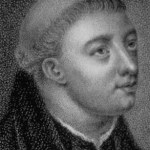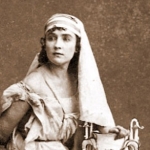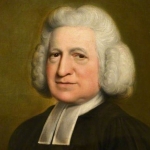All night I hear the noise of water sobbing. All night I make night in me, I make the day that begins on my account, that sobs because day falls like water through night.
All night I hear the voice of someone seeking me out. All night you abandon me slowly like the water that sobs slowly falling. All night I write luminous messages, messages of rain, all night someone checks for me and I check for someone.
The noise of steps in the circle near this choleric light birthed from my insomnia. Steps of someone who no longer writhes, who no longer writes. All night someone holds back, then crosses the circle of bitter light.
All night I drown in your eyes become my eyes. All night I prod myself on toward that squatter in the circle of my silence. All night I see something lurch toward my looking, something humid, contrived of silence launching the sound of someone sobbing.
Absence blows grayly and night goes dense. Night, the shade of the eyelids of the dead, viscous night, exhaling some black oil that blows me forward and prompts me to search out an empty space without warmth, without cold. All night I flee from someone. I lead the chase, I lead the fugue. I sing a song of mourning. Black birds over black shrouds. My brain cries. Demented wind. I leave the tense and strained hand, I don’t want to know anything but this perpetual wailing, this clatter in the night, this delay, this infamy, this pursuit, this inexistence.
All night I see that abandonment is me, that the sole sobbing voice is me. We can search with lanterns, cross the shadow’s lie. We can feel the heart thud in the thigh and water subside in the archaic site of the heart.
All night I ask you why. All night you tell me no.
All night I hear the voice of someone seeking me out. All night you abandon me slowly like the water that sobs slowly falling. All night I write luminous messages, messages of rain, all night someone checks for me and I check for someone.
The noise of steps in the circle near this choleric light birthed from my insomnia. Steps of someone who no longer writhes, who no longer writes. All night someone holds back, then crosses the circle of bitter light.
All night I drown in your eyes become my eyes. All night I prod myself on toward that squatter in the circle of my silence. All night I see something lurch toward my looking, something humid, contrived of silence launching the sound of someone sobbing.
Absence blows grayly and night goes dense. Night, the shade of the eyelids of the dead, viscous night, exhaling some black oil that blows me forward and prompts me to search out an empty space without warmth, without cold. All night I flee from someone. I lead the chase, I lead the fugue. I sing a song of mourning. Black birds over black shrouds. My brain cries. Demented wind. I leave the tense and strained hand, I don’t want to know anything but this perpetual wailing, this clatter in the night, this delay, this infamy, this pursuit, this inexistence.
All night I see that abandonment is me, that the sole sobbing voice is me. We can search with lanterns, cross the shadow’s lie. We can feel the heart thud in the thigh and water subside in the archaic site of the heart.
All night I ask you why. All night you tell me no.





















Comment form: